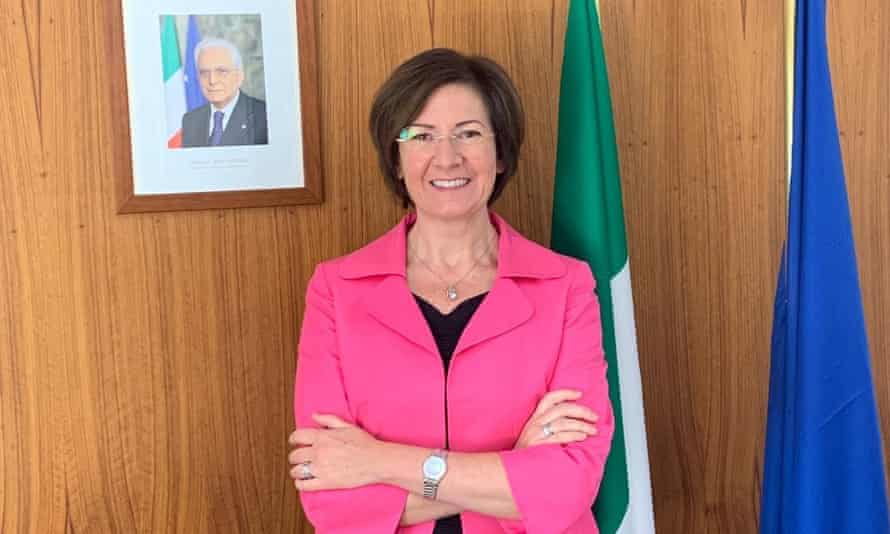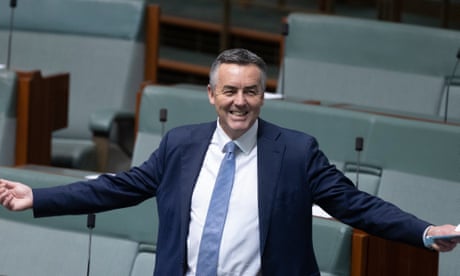Extract from The Guardian
Exclusive: Francesca Tardioli says all G20 countries including Australia need to upgrade 2030 targets and make 2050 commitment.

Last modified on Fri 24 Sep 2021 03.31 AEST
Italy’s top diplomat in Canberra has warned that there is “no time to lose” in fighting the climate crisis and hopes Australia will commit to net zero emissions.
The Italian ambassador, Francesca Tardioli, also stressed the need for countries including Australia to upgrade their 2030 targets, saying “circumstances have changed over the last five years and it is only wise to take notice of this and act accordingly, raising our ambition”.
“There is no second chance if we fail,” she said in an interview with Guardian Australia.
“There is no time to lose, not any more, if we collectively want to save our planet. This is not rhetoric, let alone catastrophism: this is science.”

The comments come as the Australian government considers whether to strengthen its climate pledges in the lead-up to the UN climate summit to be held in Glasgow, which is chaired by the UK in partnership with Italy.
The prime minister, Scott Morrison, told the US president, Joe Biden, in a face-to-face meeting earlier this week that the Australian government would “continue to work on our plan as to how we can continue to reduce emissions to zero well into the future”.
The British prime minister, Boris Johnson, told the UN this week the Cop26 summit must be a “turning point for humanity”.
Italy is hosting a preparatory meeting of the conference, known as the “pre-Cop”, and an associated youth event in late September and early October. Italy is also chair of this year’s G20 summit, where climate will be one of the priorities.
“I believe that all G20 countries can and should do more, including Australia, [which] has a huge potential to become a leader in the production of clean energy,” Tardioli said.
When asked whether she was hopeful Australia would commit to a 2050 goal for net zero emissions by the time of the Glasgow summit, she said: “I am hopeful, yes. I really hope Australia will commit to this common goal.”
She said a firm decision by the federal government would “reinforce the global alliance of those countries who really lead the world in these endeavours”.
She described Australia as a developed country with a strong economy and with strong research and development, so it “could easily lead by example within the international community”.
A decision on net zero “would also help sub-federal level to move more steadily towards urgent energy transition”.
Tardioli suggested that “circumstances have changed” when asked whether Australia should also increase its 2030 emissions reduction commitment, which has remained unaltered since the Abbott government pledged a 26% to 28% cut on 2005 levels.
“The answer is simple: recent data provided by the World Meteorological Organization have highlighted an acceleration in climate change indicators, like rising sea levels, melting sea ice and extreme weather,” she said.
“Circumstances have changed over the last five years and it is only wise to take notice of this and act accordingly, raising our ambition. This decade will be crucial if the international community wants to have a real chance to achieve the key goal of keeping temperature raising within 1.5C.”
Tardioli said almost 400 people, aged between 18 and 29, would meet in Milan for the Youth4Climate Conference next week. She said young people should be involved in “decision-making processes that will have enormous impact on their lives”.
The ambassador said Italy hoped leaders would “listen carefully to representative voices of future leaders of the world, and embrace their recommendations for a much more decisive action to fight climate change”.
With just 40 days until the Glasgow summit, Biden has committed to double climate financing and China has promised to halt the funding of coal-fired power stations overseas.
The Australian government has said it is committed to action on climate change, but it has characterised its approach as “technology not taxes”, and it remains unclear whether it will upgrade its medium-term target. So far, Morrison has expressed only a preference to achieve net zero by 2050 amid internal divisions.

A number of Australian politicians have expressed a view that large emitters such as India and China need to increase their level of commitment, otherwise increased emission reduction by Australia would be meaningless.
But Tardioli said the Intergovernmental Panel on Climate Change’s latest report was “crystal clear” that “we all must achieve immediate, rapid and significant reductions in emissions”.
“And we cannot simply rely on others: we must all do our part,” she said.
“Italy, together with many European countries, has committed to phase out coal by 2025, based on the evidence that that it is one of the main causes of rising levels in carbon dioxide in the atmosphere.”
Italy has also committed to achieving net zero by 2050, and a 55% cut in emissions by 2030 compared with 1990 levels, in line with the EU’s pledges.
Asked whether she was optimistic or pessimistic about the chances of comprehensive global action of the kind the IPCC report indicated was necessary, Tardioli said it was “not a matter of mood”.
“It is a matter of preserving the future of our future generation,” she said, adding that governments around the world “do not have the luxury to fail”.
Energy and climate ministers from the G20 – which includes Australia – agreed in Naples in July on the need for “meaningful and effective actions by all countries” in order to keep the 1.5C temperature limit “within reach”.
But ministers at the meeting could not reach consensus on setting a date to phase out coal and inefficient fossil fuel subsidies.
No comments:
Post a Comment